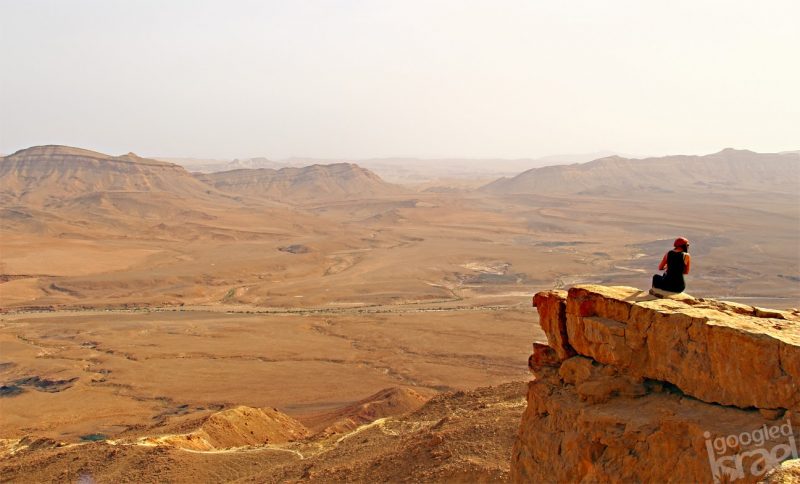Prof. Sam Lehman-Wilzig – The Negev is NOT the Future
As is well known, Prime Minister Ben-Gurion was the champion of settling the Negev — and is buried there as a testament to his devotion to Israel’s southern desert. Unfortunately, what made sense in the 20th century is no longer valid in the 21st.
This week’s world news is full of items about President Biden’s very strong push to ameliorate global warming. Indeed, he has coordinated a meeting of the world’s major carbon producers (aka polluters) and backed it up with a pledge to have America’s greenhouse emissions reduced 50% by 2030. China, too, has joined the anti-global heating bandwagon (forget about mere “warming”!) with a promise to start lowering coal use significantly in another five years. And so on with other major economic powers, each contributing what they can.
All this is hugely positive but tends to hide the fact that it is borne of desperation, as climate change will continue apace for the next several decades, notwithstanding this big change of policy. By most estimates, even if all the world’s countries take major steps in the right direction, it will lead to “merely” stabilizing global warming only in the second half of this century. And meanwhile?
Meanwhile, all of the Earth will continue heating up — in average temperature rise, as well as the extremes. We have seen and felt heat waves becoming more frequent all over the world in the relatively recent past. It’s no fun living in a temperate region where summers in the past would average about 30C (86F) but now average around 32C (90F), but that’s bearable. However, the same increase in semi-arid regions like Israel’s Negev turn what used to be an average “hot” summer into several months that are far more “oppressive”, and as the following predictions show, perhaps close to unlivable.
Israel’s Meteorological Institute (https://ims.gov.il/sites/default/files/inline-files/%D7%9E%D7%92%D7%9E%D7%95%D7%AA%20%D7%94%D7%98%D7%9E%D7%A4%D7%A8%D7%98%D7%95%D7%A8%D7%94%20%D7%A2%D7%93%202100.pdf) issued a report in 2020 predicting that by the end of the century summer temperature increases for Israel as a whole will be close to 4C (7.5F) if the world does not cut back massively on its fossil fuel use, and 1.5C (3F) even if a huge effort — a la Biden’s multi-country conference — is maintained in the coming decades. And that’s average temperature. When it comes to extremes, the picture is even less sanguine, as the Meteorological Institute notes: a summer season increase of 5C (9F) if little is done globally and 2.5C (5F) even if the world gets its act together.
Despite this, Israel is pouring money into building up the Negev: army bases are sprouting like wildfire, while Beersheva is becoming Israel’s second “megalopolis”. Conducting live-fire training exercises in the Negev’s large expanse makes eminent sense; not so, moving entire bases to what will soon become an inferno. Similarly, expanding air force bases (and perhaps building a civilian airport) constitutes reasonable policy, given that the Negev desert is Israel’s last, low populated redoubt. But these two examples are designed for very limited numbers of people – or for those in transit. On the other hand, building up infrastructure for far more people to permanently reside in the Negev constitutes demographic and ecological near-sightedness of the worst order.
And it’s not that Israel has no other alternative. The northern Galilee, and certainly the Golan, are crying out for greater population density to ensure greater economic stability. And it is a beautiful country with far more pleasant weather. It will remain climatically livable, even if the above worst-case scenario temperature increase actually occurs.
Heretofore, Israeli “ecological policy” has focused almost exclusively on water desalinization (given its semi-arid topology and growing population) and cleaner energy production: solar panels (great) and natural gas (better than oil but still carbon-producing). What has been left out of the policymaker’s equation is the other side of the coin: the “victims” of global heating (let’s not forget the animal kingdom as well – but they will migrate automatically if they can). Where people will be able to live is just as critical as what energy they should be consuming. With all due respect to Israel’s greatest prime minister David Ben-Gurion, the Negev is no longer a solution for ameliorating the country’s population density and shouldn’t be part of its “vision”. At least not until the world gets its temperature back to normal.









